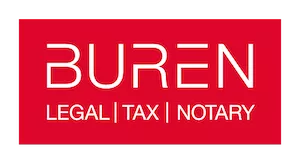- within Tax topic(s)
- within Privacy, Transport and Finance and Banking topic(s)
- with readers working within the Consumer Industries, Insurance and Transport industries
Introduction
On 17 September 2024 on the occasion of Budget Day the Dutch government presented the 2025 Tax Package.
We already informed you about the coalition plans for the coming years of the Dutch government by way of our tax alert dated 17 May 2024 (https://www.burenlegal.com/en/news/tax-impact-newcoalition-plans).
Please find below the main highlights of the proposed tax measures that are relevant for companies and entrepreneurs doing business in or with the Netherlands, with a special focus on new developments. Also, certain other legislative proposals are summarized which will enter into force on 1 January 2025.
Corporate income tax
Earning stripping rules
The generic interest deduction limitation rule on net
interest expenses (earnings stripping rule) currently has a
threshold of the highest of EUR 1 million or 20% of the EBITDA. It
is proposed to increase this percentage to 25% as per 1 January
2025. Furthermore, it is proposed that taxpayers which lease
properties to third parties will no longer be allowed to use the
EUR 1 million safe harbour threshold from 1 January 2025
onwards.
Interaction subject-to-tax test for corporate income tax
purposes and minimum tax
The proposed changes aim to specify that for certain anti-abuse
rules, a so-called minimum tax (also known as Pillar 2) qualifies
as a profit tax. The proposed changes may be relevant for the
application of the anti-base erosion rules, the Dutch participation
exemption rules and the object exemption.
Limitation gift deduction and giving from
company
The government proposes abolishing the corporate income tax (CIT)
donation deduction and the "giving from the corporation"
scheme as of 1 January 2025. Due to this change, shareholder driven
donations from CIT payers to public benefit organizations (ANBI) or
social interest foundations (SBBI) are no longer deductible for CIT
purposes and will be treated as dividend distributions.
Additionally, the earlier plan to reduce the personal income tax
(PIT) donation deduction has been withdrawn.
Amendment Tax classification rules and antiabuse rule
article 10a CITA
Article 10a of the corporate income tax Act (CITA) contains an
anti-abuse provision under which interest on debts to related
entities or persons is not deductible to the extent that those
debts, in brief, relate to certain 'tainted' situations.
Due to a change in the Dutch tax classification rules (see further
below), it is proposed to include transparent entities under the
definition of related entities for the application of article 10a
CITA.
Amendment debt waiver income exemption
The government proposes a bill to address the interaction between
the debt waiver income exemption and the loss carry forward rules
in the CITA, which were amended in 2022. Under the current
limitation of loss carry forward rules, if a company has more than
EUR 1 million in losses to offset and a taxable profit (including
income as a result of the waiver) exceeding EUR 1 million in the
same year, CIT may be due, since losses in excess of EUR 1,000,000
can only be set of for 50%. This tax burden can obstruct agreements
under the Dutch extrajudicial restructuring plans bill (WHOA) and
may push viable businesses into bankruptcy, an issue that has been
raised in both practice (also by us) and Parliament.
The proposed measure fully exempts debt waiver income for situations where more than EUR 1 million in losses can be carried forward, as long as the debt waiver income exceeds the losses incurred in the same year. This measure applies to a limited group of corporate taxpayers, minimizing its impact on other rules, like earnings stripping and charitable deductions. For cases with losses under EUR 1 million, the current system remains unchanged, keeping the treatment of debt waiver income for CIT purposes consistent with the PIT rules.
Simplified sister merger
It is proposed to extend the existing tax roll-over facilities for
legal mergers to shareholders involved in a simplified sister
merger. In a simplified sister merger, two subsidiaries which are
both fully owned by one shareholder are merged without issuance of
new shares. Under the proposed new rules, the shareholder can apply
for a roll over relief, subject to certain conditions.
Implementation ATAD1 GAAR in CITA
It is proposed to incorporate the General Anti-Abuse Rule (GAAR)
from the first EU anti-tax avoidance Directive (ATAD1) into Dutch
tax law. When the Netherlands implemented the ATAD1 into domestic
legislation, the choice was made not to include the GAAR in the law
as the GAAR's objectives are already addressed by the existing
legal concept of fraus legis. The proposed measure
addresses a request from the European Commission without intending
to make any substantial changes to the current fraus legis
practice.
Personal income tax
30% extraterritorial allowance
It is proposed to reduce the tax-free extraterritorial allowance
from 30% to 27% from 1 January 2027 onwards. The current proposal
replaces an earlier law to scale back the advantages of the
extraterritorial allowance, see our tax alert of 21 December 2023
(https://www.burenlegal.com/en/news/upper-houseparliament-adopts-2024-tax-package-and-other-taxbills).
In addition, the minimum required salary will be increased from EUR
46,107 to EUR 50,436 and the minimum required salary for employees
under the age of 30 who have obtained a master's degree at a
university from EUR 35,048 to EUR 38,338. These amounts are 2024
amounts and will be increased with inflation. A transitional regime
applies for employees who already applied for the extraterritorial
allowance in 2024.
Business succession regime
The legislator proposes several changes regarding the business
succession regime (BOR) for Dutch PIT and Dutch gift and
inheritance tax purposes. The most important changes can be
summarized as follows:
- BOR and the rollover relief scheme in Box 2 will only be available for ordinary shares representing a minimum interest of at least 5% of the paid-up share capital.
- Relaxation of the so-called ownership and continuation requirement.
- Limitation of unintended use of the BOR at a (very) high age.
- Limitation of double use of the BOR.
Reduction of Box 2 tax rate
The PIT rules for the so-called substantial interest holders of box
2 shall change. In short, this relates to individuals holding at
least 5% of (a certain class of) shares, either on their own or
together with certain others. As of 2025, taxable income up to EUR
67,000 will be taxed at a rate of 24.5% and the excess will be
taxed at a lower rate of 31% (instead of 33% in the year 2024).
Conditional withholding tax
New group criterion
The Netherlands levies a conditional withholding tax on interest
and royalty payments (from 1 January 2021 onwards) and on dividends
(from 1 January 2024 onwards) to affiliated parties. The required
affiliation is determined by way of a so-called 'qualifying
interest'. A qualifying interest is inter alia present in the
case of a 'cooperating group'. It is now proposed to
introduce a new group criterion instead of the 'cooperating
group' with a reduced scope i.e. a 'qualifying unity'
from 1 January 2025 onwards. A qualifying unity is present if
entities act together with the main aim or one of the main aims to
avoid the levy of withholding tax of one of the entities.
Dutch dividend withholding tax
Buyback of own shares by listed companies
As per 1 January 2024, the dividend withholding tax exemption for
the buyback of own shares for listed companies was abolished. It is
proposed to reverse this measure as per 1 January 2025.
Real estate transfer tax
Reduction of rates
It is proposed to lower the real estate transfer tax (RETT) for
acquiring certain properties from 10.4% to 8% on 1 January 2026.
This new 8% rate will apply to residential property acquisitions
for investors, except in cases where the existing reduced rate of
2% or exemptions apply, such as the first-time homebuyer
exemption.
Other rules which enter into force per 1 January 2025
Change Dutch entity classification rules
The Dutch entity classification rules will change on 1 January
2025. The legislative change will impact the tax treatment of Dutch
partnerships (CV and open CV), funds (FGR's) and foreign legal
forms and is aimed to reduce international mismatches. Under the
new rules all CVs will be qualified as tax transparent. For more
information regarding this bill, reference is made to our tax alert
of 1 June 2023 (https://www.burenlegal.com/en/news/changes-dutch-taxtreatment-dutch-partnership-cv-and-investmentfunds-fgr-fbi-vbi-postponed-1).
Abolition of partial foreign taxpayer
regime
The partial foreign taxpayer regime will be abolished 1 January
2025. As a consequence, qualifying taxpayers can no longer opt for
a partial exemption of PIT (i.e. Box 2 and Box 3).
Changes FBI regime
As of 1 January 2025, the FBI regime will change. For instance, the
FBI regime no longer applies to profits directly derived from real
estate investments. Consequently, such profits will be subject to
the regular CIT rates of up to 25,8% instead of the 0% rate. For
more information regarding the legislative changes, reference is
made to our tax alert of 1 June 2023 (https://www.burenlegal.com/en/news/
changes-dutch-tax-treatment-dutch-partnership-cvand-investment-funds-fgr-fbi-vbi-postponed-1).
Changes to the VBI regime
A measure was adopted to restrict access of the VBI regime to
corporate income taxpayers which qualify as a regulated investment
institution within the meaning of the Act on Financial Supervision.
A VBI which does not fall under this scope will lose its VBI
status.
Abolition of real estate transfer tax exemption in share
transactions
The current RETT exemption applicable to share transactions whose
supply is subject to VAT will be abolished. Such transactions will
be subject to RETT at a rate of 4% per 1 January 2025. Certain
transitional rules apply for ongoing projects.
The content of this article is intended to provide a general guide to the subject matter. Specialist advice should be sought about your specific circumstances.



